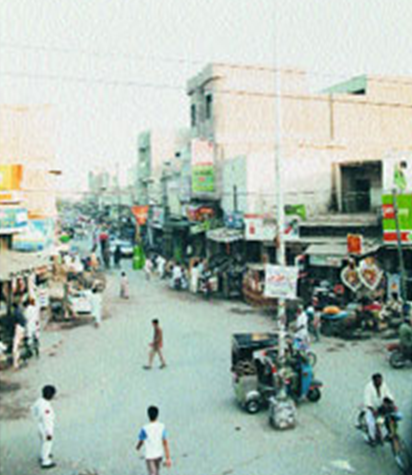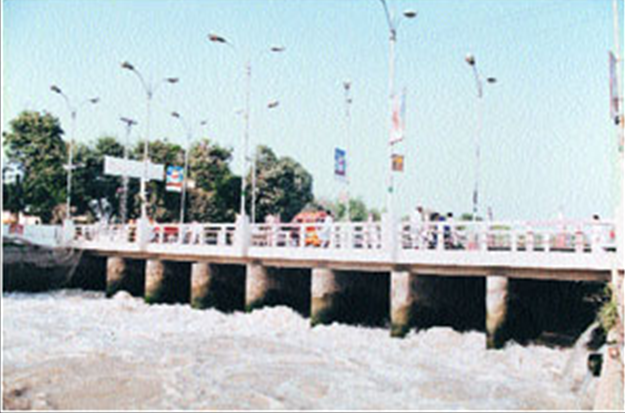Larkana
This is a collection of articles archived for the excellence of their content. Readers will be able to edit existing articles and post new articles directly |
Larkana
Lovely Larkana
By Anwer Abro
Larkana is one of the oldest cities in the province of Sindh. Here one can find traces of the great Indus Valley civilisation -- Mohenjodaro to its south, cities of Sukkur, Rohri and Khairpur to its east, the Kirthar Mountain Range on the left bank of the Indus River to its west and cities of Shahdadkot, Nauodero, Ghari Khuda Bakhsh, Shikarpur, Jacobabad, Kandhkot and Kashmor to its north. Border areas of the provinces of Balochistan and Punjab are also in close proximity from three sides. Larkana is connected with other parts of Pakistan through Indus Highway, Miro Khan Road, Mohenjodaro Road and Nauodero Road. These are the reasons why it is considered an important city. Apart from its geographical importance, different communities and tribes have given Larkan its unique identity.
In 2005, the Qambardistrict was carved out of the Larkana district. Now the Larkana district comprises four talukas: Larkana, Dokri, Bakrani and Rato Dero. The QambarShahdadkot district constitutes seven talukas: Sujawal, Miro Khan, Nasirabad, Warah, Shahdadkot, Qambr and Qubo Saeed Khan.
It was expected that the division of the Larkana district into two would bring a revolutionary change into the region, but so far the pace of development work in both districts is not satisfactory. Only Larkana city is treading the path of development and progress to some extent.
Save for Zulfikar Ali Bhutto, no Pakistani leader has attached any importance to Larkana. That’s why nowadays the city is unable to accommodate a large number of population that increases at the rate of 4.24 per cent per annum. At present, its population is 180,000. In 1901, the city’s population was 1,454 when Larkana was given the status of a district. It became 280,85 in 1941, 123,890 in 1981 and 200,400 in 1993. It is estimated that Larkan’s population will be 345,000 by 2010.
These days, Larkana city is facing an influx of population. People from the rural areas and neighbouring districts have been stepping into the city in great numbers. This has created uneven and unplanned settlements in the city, causing huge problems for civic institutions and disturbing peace and harmony in the city.
Despite all the problems, Larkana is still a wonderful place to visit. There are some good educational and health institutions in the city like the Chandka Medical College, the Chandka Medical Hospital, Civil Hospital, Cardiology Centre, Degree College, a branch of SZABIST and some private and public sector educational and health institutions. The Cadet College Larkana near Mohenjodaro, the Agriculture College near Dokri and the Nauodero Sugar Mill are some other worth-mentioning institutions. Still, the city needs modern health facilities and the Chandka Medical College should be upgraded to the level of a university. Also, the industrial units must be set up to reduce unemployment. Today, the Larkana district is controlled by the ruling party PML(Q). Its representatives run the district government of Larkana and its three major talukas: Larkana, Dokri and Bakrani. But the real development work cannot be seen anywhere. The lack of coordination and cooperation between the present Larkana district government and the taluka municipal administration of Larkana has also affected the development process. Qurban Abbasi, the Nazim of the Larkana municipal administration is sincere and committed towards the development of the city, but he faces many hindrances while executing his development plans. Having said that, the municipal administration has started to move in the right direction.
Before partition of the subcontinent, Larkana was known as the city of gardens. But subsequently it couldn't maintain its identity. It is hoped that the present administration will implement all its plans to retain the city’s old glory.

